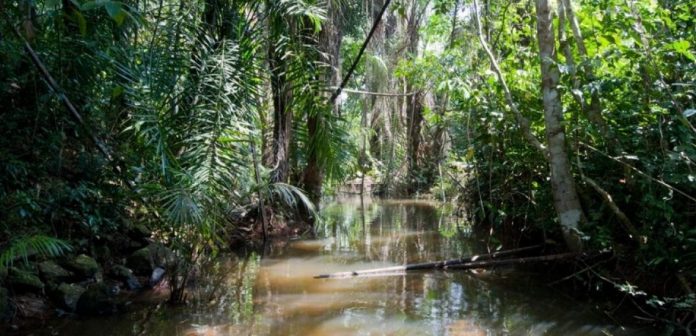By Ethel Sillah
Clean water and fresh air comes from the forest. Sierra Leone’s water catchment areas are protected and preserved by forests. Yet, we cut them down. The forest is home to all sort of amazing species of animals and plants. The country’s rich biodiversity is being destroyed at an alarming rate. We are reluctant to acknowledge the imbalance that will occur when humans tamper with the fragile ecosystem leaving the environment prone to disasters.
Furthermore, we fail to realize how intricately humans and forests are linked. It is no doubt that humans rely on the forests for its valuable resources for survival. We cannot combat climate change neglecting forest protection and preservation. The forest serves as food baskets and can play an important role to alleviate poverty in a country. As Sierra Leoneans, we aimlessly target short term gains from the forests other than focusing on its long and lasting benefits such as security, economic, health and social.
The International Day of Forests came into being on 21st March, 2012 to raise awareness on the importance of forests regardless of the type. The theme for this year’s celebration is “Forests and Biodiversity”.
Sierra Leone once had about 90 % of forest cover but could hardly boast of 50 % now. Sierra Leone has about 5 % of its forest cover the majority lost to deforestation, construction, mining and other human activities. In February 2019, the chimpanzee was declared the National Animal of Sierra Leone. This means that there is the need for massive forest restoration and stringent laws to protect the forest and to a large extent the declaration of more well-protected national reserve or parks. Again, without enforcement these laws could be seen as ‘white elephants’. Communities, individuals and the Government must be ready to protect our forests and rich biodiversity.
Take a walk along the Western Area Peninsular and you will be shocked at the on-going rapid destruction of forests for construction. We cannot sit back and wait for a reoccurrence of the August 14th landslide and flooding to remind us of the actions we need to take to correct past mistakes as a result of negligence. Bush meat consumption continues to rise in many parts of the country damaging the biodiversity. Chimpanzees are hunted and killed in the past two months and the hunters go away with impunity.
Orphan baby chimps end up in human homes as pets reducing the number of chimpanzees. The number of chimpanzees living outside of protected areas are so many and they need urgent protection. The question is–how can we celebrate our National Animals when their lives and homes are in constant danger? We can no longer boast entirely of owning lions in the country as a result of hunting, poaching and deforestation. This unfortunate path should no longer be taken in the case of our National Animals – the chimpanzees.
The world is faced with a pandemic that could also be traced to wildlife. There is a number of wildlife that harbours the corona-19 virus such as snakes, pangolin and bats. Fauna and flora continues to maintain a balance ecosystem all over the world. And the theory of nature could come into place when humans tamper with either the fauna or flora of a given place. Not only that animals and plants disappear from the face of the earth, humans will be left to live in a fragile ecosystem that could no longer support life.
Nature will hold the human race responsible if we fail to act now!




